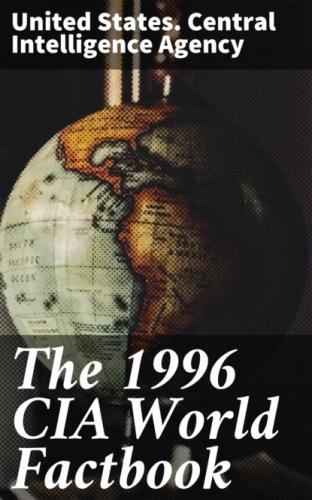Gulf of Thailand, between Thailand and Vietnam
Flag——
Description: three horizontal bands of blue (top), red (double width), and blue with a white three-towered temple representing Angkor Wat outlined in black in the center of the red band
Geography————
Location: Southeastern Asia, bordering the Gulf of Thailand,
between Thailand and Vietnam
Geographic coordinates: 13 00 N, 105 00 E
Map references: Southeast Asia
Area:
total area: 181,040 sq km
land area: 176,520 sq km
comparative area: slightly smaller than Oklahoma
Land boundaries: total: 2,572 km border countries: Laos 541 km, Thailand 803 km, Vietnam 1,228 km
Coastline: 443 km
Maritime claims: contiguous zone: 24 nm continental shelf: 200 nm exclusive economic zone: 200 nm territorial sea: 12 nm
International disputes: offshore islands and sections of the boundary with Vietnam are in dispute; maritime boundary with Vietnam not defined; parts of border with Thailand in dispute; maritime boundary with Thailand not clearly defined
Climate: tropical; rainy, monsoon season (May to November); dry season (December to April); little seasonal temperature variation
Terrain: mostly low, flat plains; mountains in southwest and north lowest point: Gulf of Thailand 0 m highest point: Phnum Aoral 1,810 m
Natural resources: timber, gemstones, some iron ore, manganese,
phosphates, hydropower potential
Land use:
arable land: 16%
permanent crops: 1%
meadows and pastures: 3%
forest and woodland: 76%
other: 4%
Irrigated land: 920 sq km (1989 est.)
Environment:
current issues: logging activities throughout the country and strip
mining for gems in the western region along the border with Thailand
are resulting in habitat loss and declining biodiversity (in
particular, destruction of mangrove swamps threatens natural
fisheries); deforestation; soil erosion; in rural areas, a majority
of the population does not have access to potable water
natural hazards: monsoonal rains (June to November); flooding;
occasional droughts
international agreements: party to - Marine Life Conservation, Ship
Pollution; signed, but not ratified - Biodiversity, Climate Change,
Desertification, Endangered Species, Law of the Sea, Marine Dumping,
Tropical Timber 94
Geographic note: a land of paddies and forests dominated by the
Mekong River and Tonle Sap
People———
Population: 10,861,218 (July 1996 est.)
Age structure:
0–14 years: 45% (male 2,505,998; female 2,432,620)
15–64 years: 51% (male 2,579,986; female 3,007,838)
65 years and over: 4% (male 143,759; female 191,017) (July 1996 est.)
Population growth rate: 2.77% (1996 est.)
Birth rate: 43.5 births/1,000 population (1996 est.)
Death rate: 15.78 deaths/1,000 population (1996 est.)
Net migration rate: 0 migrant(s)/1,000 population (1996 est.)
Sex ratio:
at birth: 1.05 male(s)/female
under 15 years: 1.03 male(s)/female
15–64 years: 0.86 male(s)/female
65 years and over: 0.75 male(s)/female
all ages: 0.93 male(s)/female (1996 est.)
Infant mortality rate: 107.8 deaths/1,000 live births (1996 est.)
Life expectancy at birth: total population: 49.86 years male: 48.39 years female: 51.39 years (1996 est.)
Total fertility rate: 5.81 children born/woman (1996 est.)
Nationality: noun: Cambodian(s) adjective: Cambodian
Ethnic divisions: Khmer 90%, Vietnamese 5%, Chinese 1%, other 4%
Religions: Theravada Buddhism 95%, other 5%
Languages: Khmer (official), French
Literacy: age 15 and over can read and write (1990 est.)
total population: 35%
male: 48%
female: 22%
Government—————
Name of country:
conventional long form: Kingdom of Cambodia
conventional short form: Cambodia
local long form: Preahreacheanachakr Kampuchea
local short form: Kampuchea
Data code: CB
Type of government: multiparty liberal democracy under a constitutional monarchy established in September 1993
Capital: Phnom Penh
Administrative divisions: 21 provinces (khett, singular and plural); Banteay Mean Cheay, Batdambang, Kampong Cham, Kampong Chhnang, Kampong Spoe, Kampong Thum, Kampot, Kandal, Kaoh Kong, Kracheh, Mondol Kiri, Phnum Penh, Pouthisat, Preah Seihanu (Sihanoukville), Preah Vihear, Prey Veng, Rotanah Kiri, Siem Reab, Stoeng Treng, Svay Rieng, Takev note: a new province of Otdar Mean Cheay may have been created from parts of Banteay Mean Cheay and Siem Reab
Independence: 9 November 1949 (from France)
National holiday: Independence Day, 9 November 1949
Constitution: promulgated 21 September 1993
Legal system: currently being defined
Suffrage: 18 years of age; universal
Executive branch:
chief of state: King Norodom SIHANOUK (reinstated 24 September 1993)
is a constitutional monarch
head of government: power shared between First Prime Minister Prince
Norodom RANARIDDH (since NA 1993) and Second Prime Minister HUN SEN
(since NA 1993) who were appointed by the king
cabinet: Council of Ministers appointed by the king
Legislative branch: unicameral National Assembly: members elected for five-year terms; elections last held 23 May 1993 (next to be held NA 1998); results - percent of vote by party NA; seats - (120 total) FUNCINPEC 58, CPP 51, Buddhist Liberal Democratic Party 10, Molinaka 1 note: the May 1993 elections were for the Constituent Assembly which became the National Assembly after the new constitution was promulgated in September 1993
Judicial branch: Supreme Court provided for by the constitution has not yet been established and the future judicial system is yet to be defined by law
Political parties and leaders: National United Front for an
Independent, Neutral, Peaceful, and Cooperative Cambodia
(FUNCINPEC),
